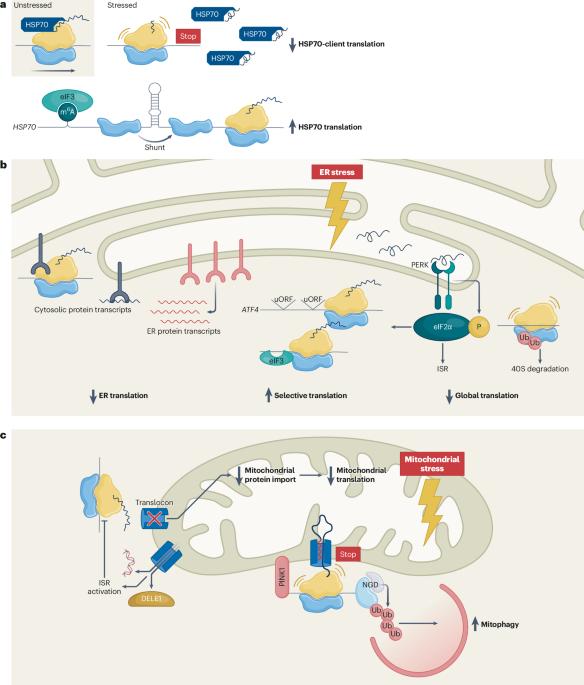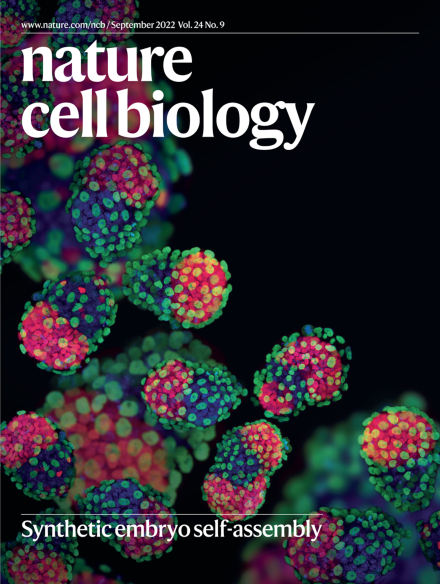Translational regulation in stress biology
IF 19.1
1区 生物学
Q1 CELL BIOLOGY
引用次数: 0
Abstract
Organisms must constantly respond to stress to maintain homeostasis, and the successful implementation of cellular stress responses is directly linked to lifespan regulation. In this Review we examine how three age-associated stressors—loss of proteostasis, oxidative damage and dysregulated nutrient sensing—alter protein synthesis. We describe how these stressors inflict cellular damage via their effects on translation and how translational changes can serve as both sensors and responses to the stressor. Finally, we compare stress-induced translational programmes to protein synthesis alterations that occur with age and discuss whether these changes are adaptive or deleterious to longevity and healthy ageing. This Review discusses the effects of three age-associated stressors—loss of proteostasis, oxidative damage and dysregulated nutrient sensing—on global protein synthesis and highlights how altered translation is used by the cell as a stress sensor.

应激生物学中的翻译调控。
生物体必须不断地对压力作出反应以维持体内平衡,而细胞应激反应的成功实施与寿命调节直接相关。在这篇综述中,我们研究了三种与年龄相关的应激因素——蛋白质平衡丧失、氧化损伤和营养感知失调——如何改变蛋白质合成。我们描述了这些压力源如何通过它们对翻译的影响造成细胞损伤,以及翻译变化如何同时作为传感器和对压力源的反应。最后,我们将压力诱导的翻译程序与随着年龄增长而发生的蛋白质合成改变进行比较,并讨论这些变化对长寿和健康衰老是适应性的还是有害的。
本文章由计算机程序翻译,如有差异,请以英文原文为准。
求助全文
约1分钟内获得全文
求助全文
来源期刊

Nature Cell Biology
生物-细胞生物学
CiteScore
28.40
自引率
0.90%
发文量
219
审稿时长
3 months
期刊介绍:
Nature Cell Biology, a prestigious journal, upholds a commitment to publishing papers of the highest quality across all areas of cell biology, with a particular focus on elucidating mechanisms underlying fundamental cell biological processes. The journal's broad scope encompasses various areas of interest, including but not limited to:
-Autophagy
-Cancer biology
-Cell adhesion and migration
-Cell cycle and growth
-Cell death
-Chromatin and epigenetics
-Cytoskeletal dynamics
-Developmental biology
-DNA replication and repair
-Mechanisms of human disease
-Mechanobiology
-Membrane traffic and dynamics
-Metabolism
-Nuclear organization and dynamics
-Organelle biology
-Proteolysis and quality control
-RNA biology
-Signal transduction
-Stem cell biology
 求助内容:
求助内容: 应助结果提醒方式:
应助结果提醒方式:


